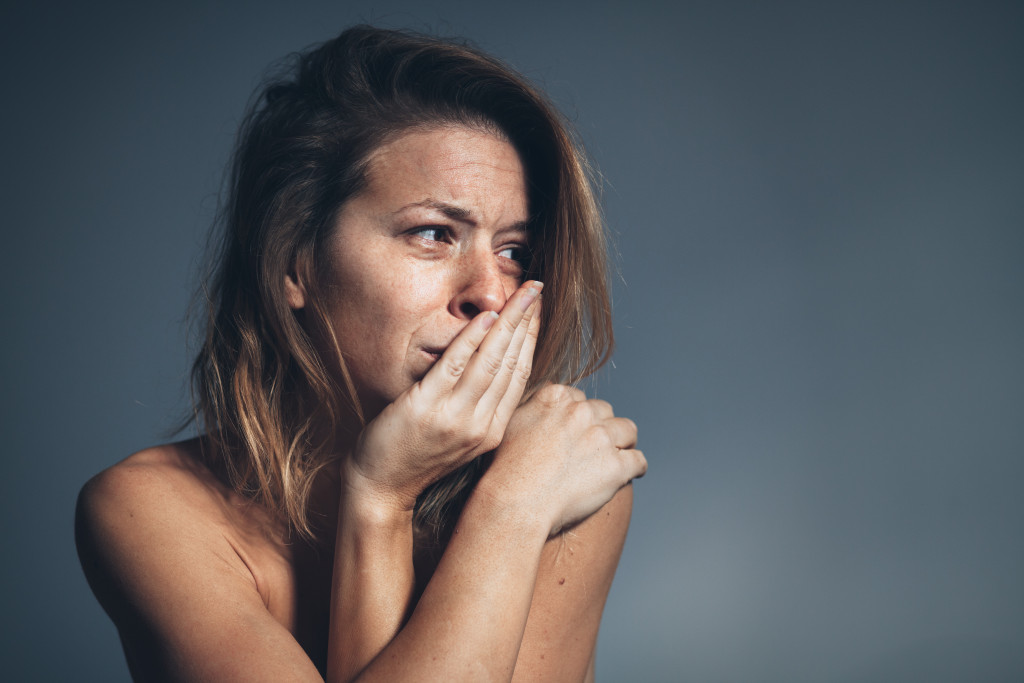Both men and women are prone to mental health problems, but women are more likely to experience certain types of disorders. This is primarily because women are more likely to experience certain risk factors for mental illness, such as trauma, stress, and hormonal changes.
Other factors in life can also affect a woman’s mental health, such as her relationships, job, finances, and physical health. All of these things can contribute to the development of mental health problems.
As of this writing, around 1 in 5 women worldwide suffer from some sort of mental health problem. This shows that mental health disorders are quite common among women. It has become pretty prevalent that in the Philippines, online counseling services have been on the rise ever since the COVID-19 pandemic. As the world moves forward, it is crucial to understand and learn more about mental health disorders, how they develop, and how to get help if you’re suffering from one.
Women can suffer from many different types of mental health disorders. Some of the most common ones include:
Anxiety disorders
According to the National Institute of Mental Health, anxiety disorders are the most common mental illness in the United States, affecting 40 million adults. And of those 40 million, it is estimated that nearly twice as many women as men suffer from some form of anxiety disorder. While the exact cause of anxiety disorders is unknown, they are thought to be a combination of biological, psychological, and social factors.
Women are more likely than men to experience several risk factors for anxiety disorders, including stress from work and home responsibilities, trauma from sexual assault or abuse, and hormonal changes during puberty, pregnancy, and menopause. Additionally, women are more likely than men to seek treatment for anxiety disorders. People with anxiety disorders can lead happy and productive lives with the proper treatment, which may include medication and/or therapy.
Depression
Women are more likely than men to experience depression. This is due to various factors, including hormones, brain chemistry, and life experiences. For many women, the onset of depression occurs during times of transition, such as puberty, pregnancy, and menopause. Other risk factors include chronic stress, relationship difficulties, and financial problems.
While depression can be a severe and disabling condition, treatments available can help. If you’re experiencing symptoms of depression, don’t hesitate to reach out for help from a mental health professional. With the proper support, you can start feeling better and get back to living your life.
Eating disorders

Eating disorders have the highest mortality rate of any mental illness, and women are much more likely than men to suffer from them. An estimated 10 million women in the United States have some form of eating disorder, such as bulimia nervosa, anorexia nervosa, or binge eating disorder.
What are these disorders?
- Anorexia nervosa is characterized by a fear of weight gain and an obsessive desire to be thin. Anorexic people often restrict their food intake and may workout excessively.
- Binge eating and purging are characteristic features of bulimia nervosa, which may be done by vomiting, taking laxatives, or over-exercising.
- Binge eating disorder is characterized by recurrent episodes of binge eating, during which a person eats an excessive amount of food in a short period of time.
Eating disorders often develop during adolescence or young adulthood, and they can be triggered by a variety of factors, including cultural pressure to be thin, stress, trauma, and low self-esteem. Understanding the root cause of your eating disorder is an important part of recovery. With treatment, which may include therapy, medication, and/or nutrition counseling, it is possible to recover from an eating disorder and live a happy life.
Post-traumatic stress disorder
Post-traumatic stress disorder (PTSD) or acute stress reaction is a condition that can occur as a result of exposure to trauma, such as military combat, sexual assault, or a natural disaster. Women are more likely than men to experience PTSD, and the condition is thought to affect around 3.5% of adults in the United States. Symptoms of PTSD can include flashbacks, nightmares, anxiety, and difficulty sleeping.
Women with PTSD report higher rates of depression, anxiety, and substance abuse than men with PTSD. Sadly, this mental health disorder is often underdiagnosed and undertreated. If you think you might have PTSD, it’s important to seek help from a mental health professional. With treatment, you can learn to manage your symptoms and live a fulfilling life.
Final thoughts
If you’re a woman who is struggling with mental health issues, know that you’re not alone. There are many resources available to help you get the support and treatment you need. Talk to your doctor about your symptoms and options for treatment. With the right help, you can overcome mental health problems and live a happy, healthy life.
